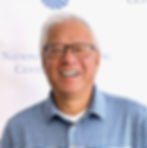About NAPCA


The National Asian Pacific Center on Aging (NAPCA) is a non-profit organization devoted to improving the quality of life for Asian American, Native Hawaiians, and Pacific Islander (AANHPI) older adults through education and advocacy. NAPCA provides culturally competent programs and services, advocates for the dignity and well-being of AANHPI seniors, and works to address health disparities and access to services. Our efforts include job training, health initiatives, and multilingual helplines to support diverse aging populations.
Vision
—
A world without language or cultural barriers, where all older adults have full access to services, resources and opportunities
Mission
—
Empowering older adults through advocacy and access to resources essential to their well-being and independence, regardless of language or culture

Statement from CEO,
Clayton S. Fong
—
Hello everyone, I’m Clayton Fong, President and CEO of NAPCA. Since 1979, NAPCA has been dedicated to empowering AANHPI older adults to age with dignity and well-being. We work to enhance their quality of life through advocacy, education, and access to essential resources, ensuring that every elder feels valued and supported. Our team is committed to creating impactful programs and services, from providing Digital Skills Training to hosting vaccine and Medicare Open Enrollment outreach events each fall. We also operate a multilingual helpline to assist with a wide range of health coverage inquiries. Let’s continue to work together to ensure AANHPI seniors are well-supported and thriving.
Brief Timeline of NAPCA
1976
Research grant from the Administration on Aging
The grant funded creation of the National Pacific/Asian Elderly Research Project (NP/AERP). The Project, based in Los Angeles, engaged in research to help in the development of new “service delivery models” for AANHPI elderly, gathering empirical data in Seattle, Los Angeles and San Francisco.
1989
NAPCA adds direct training and employment services for AAPI seniors
The Pacific Asian Coalition, a national AAPI advocacy group, sponsored a proposal to the Administration on Aging to create a permanent national resource center as a successor to NP/AERP. The Administration provided funding for a “Pacific/Asian Elderly Resource Center Development Project” in Chicago, New York, Honolulu, and San Francisco to bridge the gap between AAPI elderly and the services to which they were entitled. On November 1, 1979, NAPCA was born.
2004
NAPCA creates a National Multilingual Helpline
NAPCA established a National Multilingual Helpline to assist limited-English-speaking seniors with Medicare, low-income subsidies, and other federal benefits. The Helpline is staffed by counselors fluent in Vietnamese, Korean, Mandarin, and Cantonese, providing support in multiple languages.
2017
Helpline temporarily discontinued
2016
New strategic direction
In November 2016, the Board of Directors ratified new strategic goals focused on national leadership, advocacy, expertise, accurate information and data, to strengthen the organization.
2019
CARE Registry launched to address health and medical disparities for AAPI
NAPCA partners with the University of California San Francisco to develop the nation's first AAPI medical research registry.
2020
Multi-language HELPLINE relaunched to support elders during the pandemic
In response to COVID-19, NAPCA relaunches improved version of its nationwide multilingual Helpline to provide emergency support for AANHPI older adults.
2022
Digital Skills Training program launched
The first session in the series was launched to teach seniors essential computer skills, helping them stay connected and navigate the digital world confidently.

NAPCA's Funders
—
NAPCA receives the majority of its funding from the US Department of Labor, with additional grants from nonprofit organizations like NCOA, USAging, AAJC, and Archstone to support various initiatives. Our corporate sponsors include Amgen, Novo Nordisk, and PhRMA.









